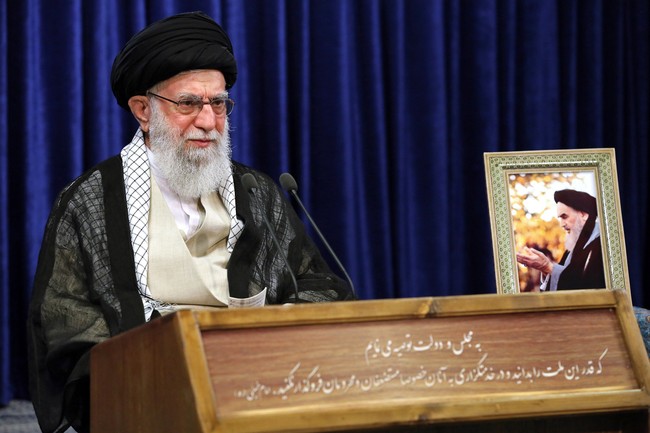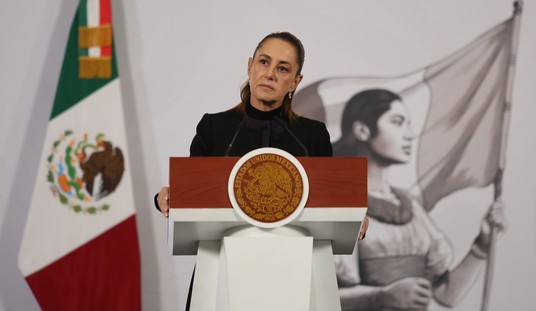President Joseph R. Biden Jr. and his handlers turned the U.S. foreign policy apparatus into a ghost ship with a scurrying crew, which facilitated the Hamas attacks on Israel launched Saturday, said the director of Iranian policy for President Donald J. Trump’s National Security Council staff to RedState.
“Biden hasn't been actively involved in decisions since the Afghanistan withdrawal; at that point, they functionally sort of took his hands off the wheel, and they've controlled his schedule,” said Robert Greenway, the director of the Washington-based Heritage Foundation’s Center for National Defense.
The president's staffers and advisors have created a cocoon around Biden so that American foreign policy is controlled by competing courtiers, such as White House Coordinator for the Middle East and North Africa Brett McGurk, National Security Advisor Jake Sullivan, Secretary of State Anthony Blinken, the retired Army Special Forces officer said.
“They've taken responsibility for decision-making largely away from him, and they've created a machine that operates without him. The only problem is no one else is in charge, so Sullivan's not in charge of calling the shots. Blinken doesn't want to be in the same room as a decision."
It was Sullivan, a week before the Hamas attacks, who said at an Atlantic forum: "The Middle East region is quieter today than it has been in two decades.”
Biden National Security Advisor Jake Sullivan (last week): "The Middle East region is quieter today than it has been in two decades" pic.twitter.com/59MYUXhmHf
— RNC Research (@RNCResearch) October 7, 2023
Greenway said with neither Sullivan nor Blinken stepping in, more junior bureaucrats are seizing the initiative, making it so there is no consistent policy and no consistent goals.
“It's a Flying Dutchman, and that means you get bureaucrats and subordinates, Brett McGurk being one of them--and his track record is absolutely horrific. He's smart, bureaucratically politically and energetic, and enthusiastic, but his decisions and instincts are all wrong and personally-serving.”
Greenway, who was a senior intelligence officer at the Defense Intelligence Agency, said no one has taken the reins, so there is a drift amongst the competing factions.
“That’s sort of the problem is that Biden's disconnected from it, and so now everyone is left to sort of carve out their own roles, and that has created chaos. Chaos in a place where they're already moving in the wrong direction. Now, I don't know how this ship gets turned around.
“That's why he was calling a lid at like eleven thirty in the afternoon and then had a barbecue, which is just egregious with American’s blood spilled."
The conflict in Israel, sparked Saturday by Hamas terrorists launching complex air, sea, and land strikes against Israeli military and civilian targets, is not getting better, said the Virginia Military Institute graduate, who was the principal architect of the Abraham Accords.
“It’s going to get a lot worse because we have some very difficult decisions to make right now. We're already behind the ball, and things are going to get a lot worse if we don't do what needs to be done now to reverse course—and that's not happening."
Greenway: Biden administration reversed Iran’s economy, built its economic strength
The combat veteran of the Iraq and Afghanistan theaters said when he joined the National Security Council staff to lead Middle East and North Africa policy for Trump, he recognized that President Barack Obama and his administration had worked to transform the Middle East.
“When we came in, the economic situation of Iran had its problems,” Greenway said.
After eight years, the Obama administration successfully gave the Islamic Republic the strategic equity to support its mission statement.
“Tehran had more than enough resources to pursue its regional objectives, and its internal objectives oppress its people, control its population, and pursue a broad-ranging military reorganization and reconstruction effort to rebuild their military,” he said.
He said the military program chiefly consists of their missile program and regional surrogates and proxies. "That's how they defend themselves in depth in the region. That's how they prioritize their spending, and their drone program would also be part of that.”
Facing an ascendant Iran, Greenway said the Trump administration attacked its oil revenues.
“We had cut off their oil sales to the point where they were averaging 400,000 barrels a day at $55 a barrel, and so they were no longer able to sustain their military growth or sustain the level of funding for the surrogates and proxies.
“That was our going-in proposition. We were going to create a trading imbalance. We were going to prevent them from funding all the programs that threaten the United States and our partners and allies in the region.”
The president and executive director of the Abraham Accords Peace Institute said the Trump administration ran out of time.
“I think if we had more time to do it, we could have brought about something approaching an economic collapse or at least economic paralysis,” he said. “We probably started too late, so this may be a different discussion.”
When the Biden team came in, they undid the progress the Trump team made degrading Iran economically, but they did it in a less deliberative, less thought-out approach than the Obama policies, Greenway said.
“They have reversed course completely, and instead of lifting sanctions, which are largely administrative in Iran's case, they just don't enforce them,” he said.
“Their accessible foreign exchange reserves when we took over was probably in the $50-to-$60 billion range, which isn't a lot, but it's sufficient for them to maintain a trade balance,” he said.

“By the time we left the administration, they had about $6 billion in accessible foreign exchange reserve, which is what Haiti has, which for Iran is near catastrophic.”
As of last year, the Iranians have completely recovered economically with no enforcement of sanctions on their oil exports—before the Biden administration’s $6 billion transfer, he said.
“They’re exporting over three million barrels a day at $85 a barrel,” he said. “They’ve regenerated their accessible foreign exchange reserves to the point where they're north of $70 billion, and they're making more than enough money.”
Last year, Iran's revenues from the export of crude oil and condensate reached 42.6B USD, compared to 25.5B in 2021, and 7.9B in 2020.
— Robert Greenway (@RC_Greenway) October 8, 2023
In August, Iran reported exports of 1.7M barrels per day, a level not seen since March 2019. Others put the figure even higher, at 2.2M BPD. By… https://t.co/CjWYW0Ilvv pic.twitter.com/vdn0mcN69O
“In 2022, I think they made $49 billion in oil exports alone because of those sanctions enforcement, and this year they're on track to make over $70 billion,” Greenway said. “The $6 billion sitting in Qatar that the Koreans were too smart to let go is a drop in the bucket.
Obama’s effort intended to regularize Iran in the international community so that a strong and integrated Iran would contribute to Middle East stability, Greenway said. Part of that effort was to boost Iran’s finances and remove barriers to its international commerce.
“The Obama administration's policies were to integrate Tehran economically as a benefit, encouraging them to stop engaging in terrorism and to stop developing a nuclear weapon,” he said.
Greenway said their goal was a strong and friendly Iran that would then allow America to leave the Middle East to its own devices.
“The supposition, the philosophical idea behind it was, if I strengthen Iran's position in the region, I will achieve an equilibrium, and I won't have to have a strong US presence in the region,” he said.
Greenway: Biden team makes the same mistakes with Iranians, Palestinians
Biden administration officials who rebooted Iran’s economy are the same crowd running America’s support of the Palestinians, he said.
“That’s the idea they use to approach the Palestinians in Israel, strengthen the Palestinian side and weaken, constrain the Israeli side, and you get to a negotiated settlement.
“Same ideas again; they have no basis, in fact, no precedent. The assumptions are all wrong."
It was a dangerous game, betting Iran would choose prosperity over conflict, he said.
“That was the assumption, which I suppose you can indulge in grad school, but you can't in most parts of the world, certainly not the Middle East.”
















Join the conversation as a VIP Member